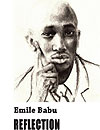A few days ago I was presented with an interesting question by one of my mentors. She asked me, “What would you write if you knew you had only a few days, maybe even hours of life left, just long enough to sum up what is most important to you about life? What would you write?”


A few days ago I was presented with an interesting question by one of my mentors. She asked me, "What would you write if you knew you had only a few days, maybe even hours of life left, just long enough to sum up what is most important to you about life? What would you write?”
After sleeping on it, I put down my thoughts and wish to share them with you. As you read, I invite you to reflect upon the same question; If you had a few more hours to live what would be your own last message to the world?
In my view, success can be defined as the measure of human legacy. All knowledge and achievement that can be marshaled in a lifetime is not of much significance if it does not educate or empower at least one fellow human being for the better.
If I had a few more hours to live, my final words would be summed up in a message about the importance of an immortal human legacy: mankind’s ability to leave behind, that which is greater than him.
I will illustrate why I hold this topic dear with two short stories that have inspired me: Stories that touched my heart and will hopefully continue to define my standpoints.
In 1722, a series of letters appeared in the New-England Courant written by a hitherto unknown middle-aged widow named Silence Dogood. She discussed various aspects of colonial life in America by criticizing societal ills like drunkenness, religious hypocrisy and sexism.
She wrote that she had been widowed after her husband, a minister, had died leaving her with three children. She also demurely revealed that she could be easily persuaded to marry again.
She served as a consistent social commentator and her letters are today remembered as a mirror through which society saw itself in earnest.
Regrettably for her many admirers, Silence Dogood did not exist. She was a character and a pseudonym, for a sixteen year old boy who worked as an apprentice at his older brother’s printer in Boston.
This young boy would later become one of the founding fathers of the United States, the scientist, inventor, soldier and diplomat who formed the first public library and fire department in America. Silence Dogood was Benjamin Franklin.
To some this story may not mean much, but to me, Silence Dogood stands for values deeply respected. Through her name and actions, ‘Silence’ actually ‘Did good’. She revealed the selfless nature and relentless imagination that foments the immortal legacy of Benjamin Franklin.
My second short story is about a young man in his mid twenties who chose to start a career as an artist in the late 19th century. This man had little money, ate poorly and spent everything he had on materials.
In February 1886, he wrote to his brother saying that he could only remember eating six hot meals since May of the previous year.
His teeth became loose and caused him much pain as he suffered from anxiety and frequent bouts of mental illness. Nevertheless, he produced more than 2,000 pieces of artwork. He later died as a sad and impoverished from a self-inflicted gunshot wound at the tender age of 37.
98 years after his death, his painting ”Irises” sold for $53.9 million at Sotheby’s in New York, making it the highest price ever paid for an artwork at an auction at the time. The man was Vincent Van Gogh.
One may argue that there have been far too many great artists and politicians and, therefore, there is no specific reason why these two personalities would be part of one’s last message to the world. Silence Dogood and Vincent Van Gogh never got to taste greatness in their lives.
While Silence chose to avoid the limelight that came with greatness, Vincent never achieved the wealth or fame that he so desired. And yet the works of these two ordinary human beings changed the world and the way we see it, albeit posthumously for Vincent.
For this reason, I believe that we all have it in us to think bigger than the present day, to create that which will outlive our stay and to make an impact that will not be measured by today’s wealth, power or fame.
If I had a few more hours to live, it would be sad because I have not had enough time to build this kind of lasting legacy.
This is why I would choose this as my final topic in the hope to inspire the reader to build their own legacy, to think big, be virtuous and work relentlessly at whatever they are good at. This note, in essence, would be my legacy.
Emile Babu is a Rwandan journalist currently based in Michigan, USA.


